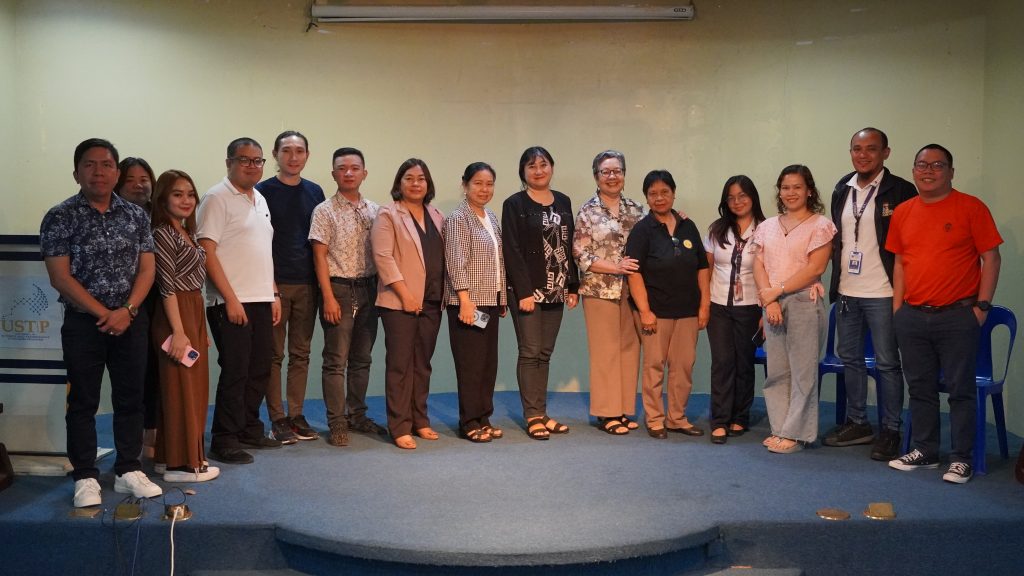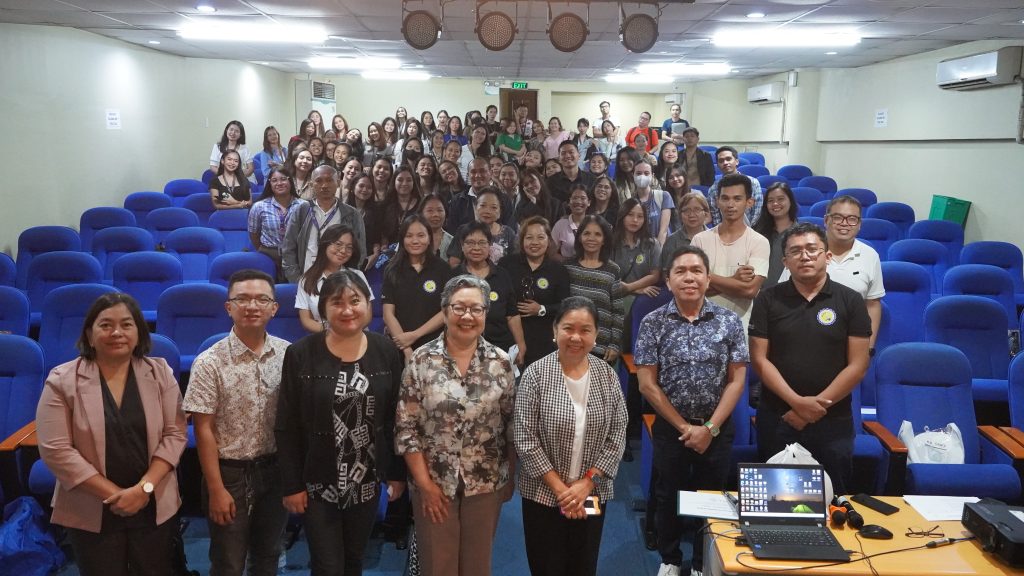15-year Longitudinal Cohort Study on the Filipino Child: RIMCU, USTP CDO partner for research dissemination forum
By Kristine Jane M. Laid, USTP System STRATCOMM
Share:
The Research Institute for Mindanao Culture (RIMCU) partnered with the University of Science and Technology of Southern Philippines in Cagayan de Oro’s (USTP CDO) Research Office for a research dissemination forum on the 15-year Longitudinal Cohort Study on the Filipino Child (LCSFC) on May 10, 2024, at the ICT-AVR, USTP CDO.
The Longitudinal Cohort Study on the Filipino Child (LCSFC) examines the changes in young Filipinos’ lives over the 15-year implementation of the Sustainable Development Goals (SDGs).
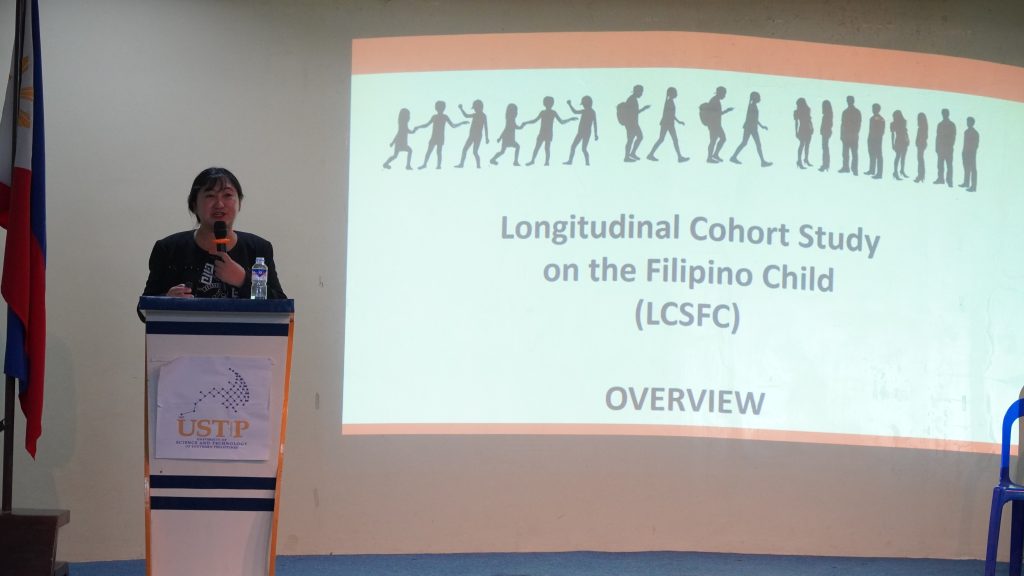
Dr. Nanette Lee Mayol gives the background of the study
Dr. Nanette Lee Mayol, Director of the Office of Population Studies (OPS), presented the study’s findings based on Waves 1 to 6, which served as markers for the timeline used to collect data. House visits were conducted in Waves 1- 4 and 6, while phone surveys were used in Waves 4A and 5. Waves cover specific periods: Wave 1 (November 2016- January 2017); Wave 2 (February- April 2018; Wave 3 (January 2019- June 2021); Wave 4 (January- March 2020); Wave 4A (November 2020); Wave 5 (June- August 2021), Wave 6 (October to December 2022).
LCSFC Samples: Filipino children
This prospective cohort study’s respondents are 10-year-old Filipino children from Luzon, Visayas, and Mindanao. In 2016, they were ten years old and will be monitored until 2030, when they will be 25 years old. The study implicitly included marginalized children, specifically Indigenous Peoples (IP) and households with disabilities.
Factors Considered in the Quantitative Data
The quantitative data focuses on the following main areas: socio-demographic and economic factors, education and work, health, risk behaviors, exposure to bullying and domestic/peer violence, the environment, and involvement in programs that help people get out of poverty. Researchers were able to record important events in the correspondents’ lives by looking at their puberty, cognitive abilities, mental health, sexual behavior, sexual orientation and gender identity expression (SOGIE), and histories of pregnancy and living with someone else.
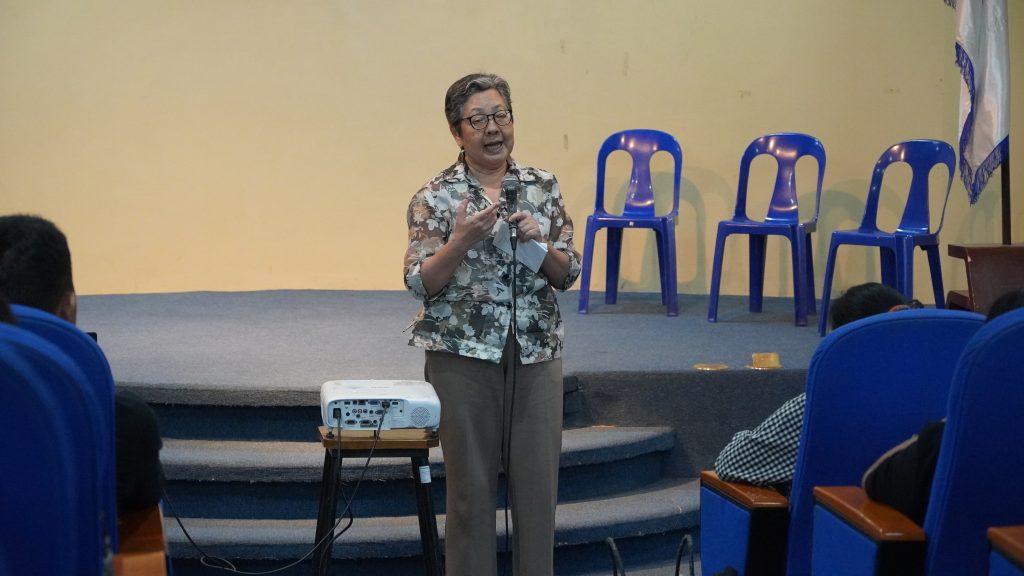
Dr. Judith Rafaelita B. Borja, the Principal Investigator, of the study
LCSFC Key Findings: Child Labor
Dr. Judith Rafaelita B. Borja, the Principal Investigator, highlighted one of the study’s key findings: child labor. Researchers discovered that being male means working after the age of 10 or persistently working both before and after that age. Additionally, it was presented that there’s a correlation between a higher chance of child labor and poorer school proficiency results.
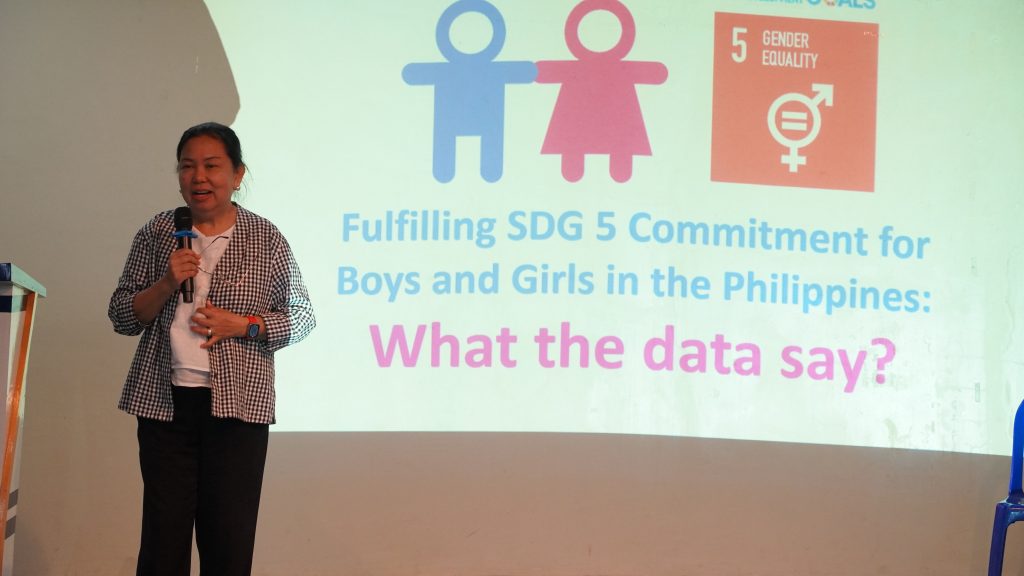
Dr. Chona R. Echavez, Research Institute for Mindanao Culture (RIMCU) Director, presenting the results of the study
Dr. Chona R. Echavez, Director of RIMCU, also shared the salient points on fulfilling the SDG Commitment for Boys and Girls in the Philippines. Dr. Echavez emphasized the importance of having a dream. “Ang pinakalisod na kapobrehon kay dili ang kawad-on sa kwarta kundi makulong ang mga bata sa ilang mga damgo,” [“The hardest thing about poverty is not the lack of money, but the fact that children are imprisoned in their dreams,”] she said.
“Understanding and respecting the diverse dreams and challenges of marginalized adolescents are crucial steps toward providing support systems that foster hope, resilience, and empowerment, ultimately contributing to their holistic development,” Dr. Echavez on fulfilling the said SDG.
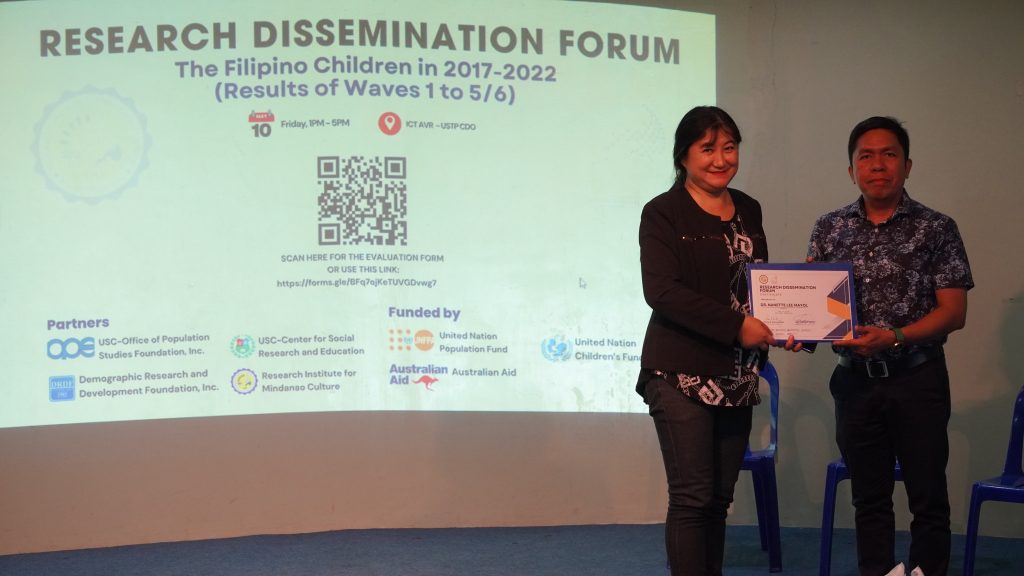
Dr. Nanette Lee Mayol, Director of Office of Population Studies (OPS), receives the certificate from Dr. Ismael N. Talili, USTP CDO Research Office Director
The success of LCSFC was made possible by the support of national and international partnered agencies, including the United Nations Fund for Population Activities (UNFPA), the United Nations International Children’s Emergency Fund (UNICEF), the Australian Government, and the Joint SDG Fund, in coordination with the Philippine Government’s National Steering Committee chaired by the National Economic Development Authority (NEDA).
